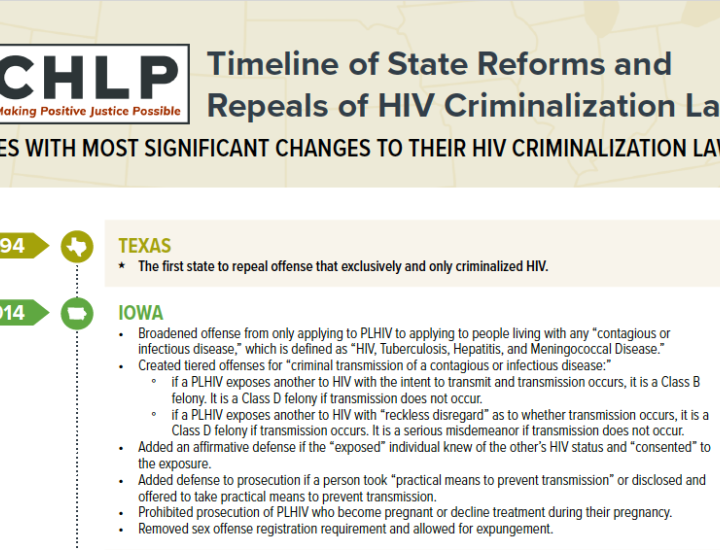Criminal Law
From the beginning of the HIV epidemic, fear and ignorance about HIV's routes and relative risks of transmission have fueled a backlash against people living with HIV, most evident in the laws that punish them for engaging in consensual sex or activities that pose no risk of HIV transmission. The media coverage that accompanies these cases often demonizes people with HIV and misrepresents the risk of transmission, helping to perpetuate stigma that results in denial of jobs and services and decreased willingness to get tested. Because there is no evidence that HIV-specific criminal laws and prosecutions have any effect on behavior, the argument that these laws serve a deterrent effect is unfounded. Punishing people for behavior that is either consensual or poses no risk of HIV transmission only serves to further stigmatize already marginalized communities while missing opportunities for prevention education.
This HIV Policy Resource Bank category includes legal and advocacy tools that address issues such as crim inal prosecution for spitting and other actions that pose no risk of HIV transmission, the status of state criminal laws across the country, the effect of criminal exposure laws on sex workers, prosecution for HIV exposure as it relates to larger public health concerns, the number and types of prosecutions, and international guidelines on rational public policy related to HIV exposure.
To subscribe to PJP listserve, contact us at [email protected]
